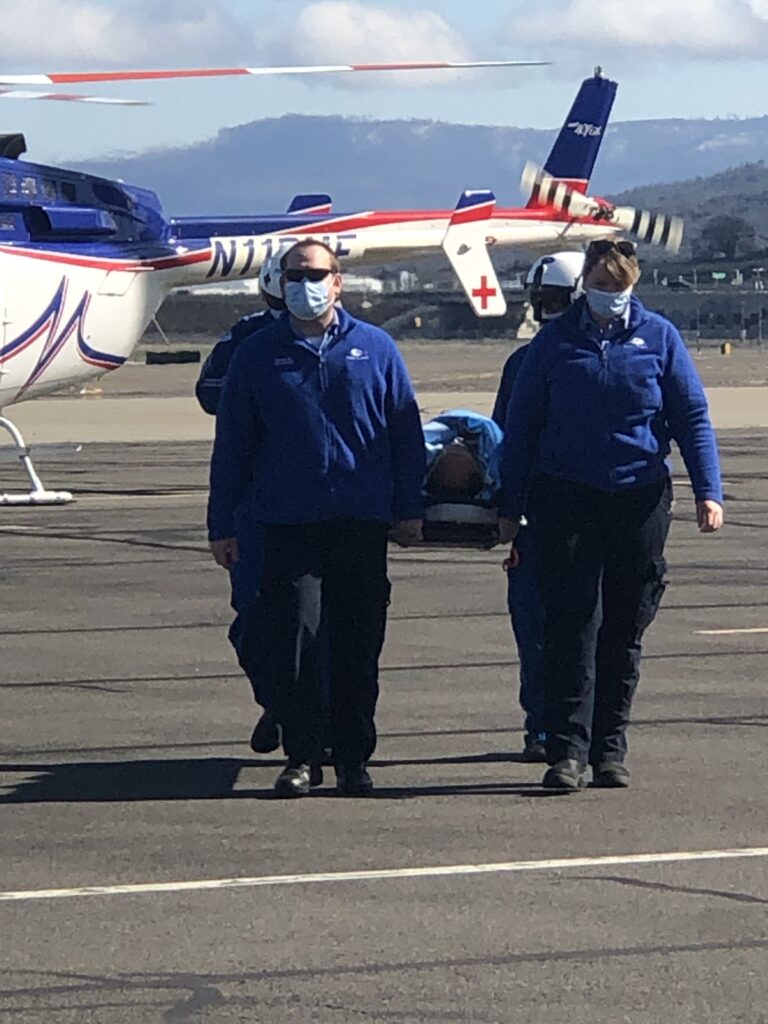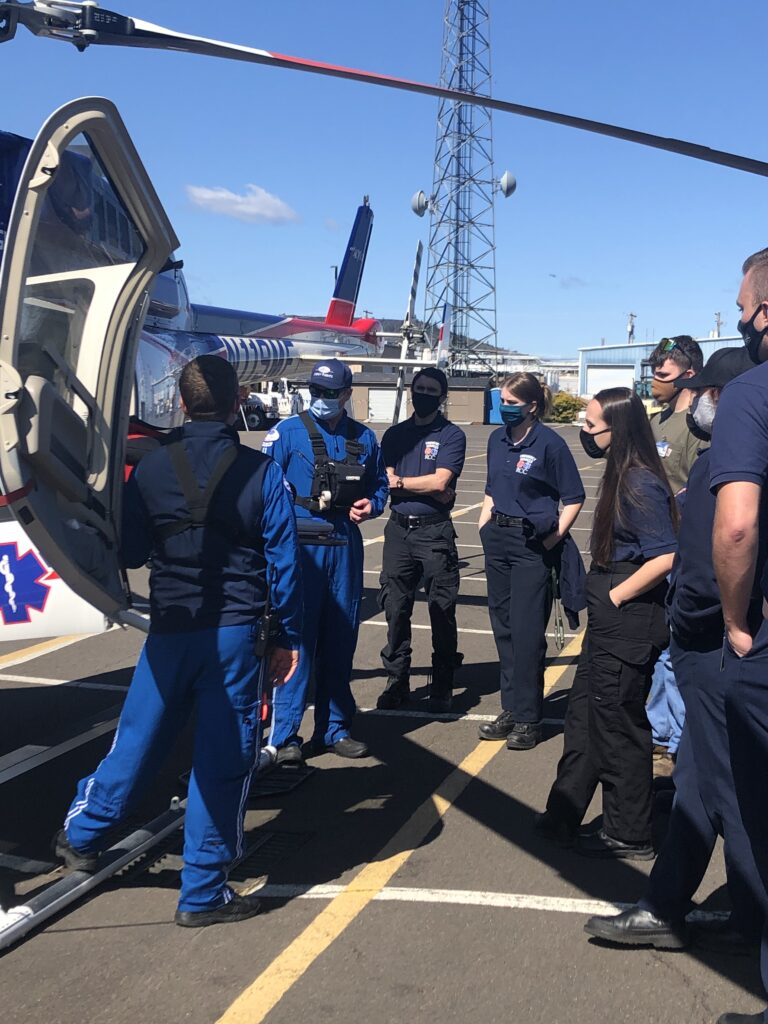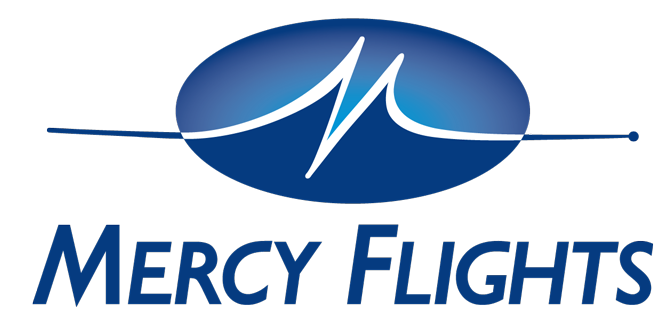Mercy Flights team constantly strives to enhance care

Mercy Flights ground and flight teams train together to enhance care and communication.
When a patient’s life is on the line, ground ambulance crews make a lot of critical decisions and every second matters. One of those decisions might be if and when to call for helicopter transport to get a patient where they need to be as quickly as possible. The partnership between ground and air medical teams becomes even more important in rural communities, like Southern Oregon, where the nearest hospital might be too far away to reach safely by ground.
Hands-on, small group training
Last month, Mercy Flights ground crews gathered with flight crews under the powerful rotor blades of Mercy Flights’ Bell 407 GX Helicopter for a reenactment designed to enhance patient experiences and outcomes while strengthening communication and skills for team members.
“It’s nothing new for us to work together to provide excellent patient care but carving out this time to specifically work through mock scenarios gave us all an opportunity to dig deeper and get a clear understanding of how we can better support each other and the patients we care for,” said Tyler Baker, Mercy Flights’ interim flight operations lead.
Team members from each ground unit came in shifts to spend time in the flight hangar, the ambulance and inside the helicopter with members of the flight team. Some of the ground crew members also took a short helicopter ride to get a first-hand look at the air transport process from the inside out.
Baker, who brought the joint training idea to Mercy Flights CEO Sheila Clough, said he was encouraged by the organization’s recent efforts to get more staff input and involve the team in more decision-making.
“Last year, we did some deep digging to learn from the team,” said Clough. “We asked them to help us identify strengths and opportunities for improvement and growth. They had so many insights that helped shape our strategic plan and we want to make sure their input continues to influence our work in meaningful ways. When Tyler brought this joint flight and ground training idea forward, it was an easy ‘yes’ for us.”
According to Baker, there are a number of small details that have a big impact on flight patient transfers.
“When the ground crew knows what to look for and what to share with our flight team in advance, we can all do more to get patients where they need to be faster,” said Baker.
These details include scanning for landing zone restrictions like powerlines, light poles, fences and the overall length and width of the area that will be used to get to the patient by helicopter. The other important detail is knowing where and when it makes sense to put the flight crew on standby and then to activate them.
“The crew’s reaction was so positive. It was really great to strengthen that bridge between our flight and ground crews,” Baker added.

Mercy Flights crews visit the Rogue Community College Tablerock campus for a training with Emergency Medical Technician program students.
Growing future first-responders
A similar training also took place last month with the region’s next generation of EMTs and paramedics from Rogue Community College’s Tablerock Campus. More than 50 students participated in the 30-minute fly-in and the response was enthusiastic.
“This was our first time flying in to the RCC campus,” said Baker. “It was really nice to be able to visit our neighborhood community college and meet the students,” said Baker. “Whether they end up working with Mercy Flights or with someone else, it’s benefiting the EMS industry when they get this extra education.”
Baker began his career in 2011 as a ground paramedic/firefighter near Portland and within a few years, became a flight paramedic and then moved on to flight supervisor at Mercy Flights in 2019. He still loves flying shifts, so he understands the excitement expressed by the RCC students.
“We really want to invest in Rogue Community College, both the students and the program itself. They are a great partner to us and they really do a good job getting their students the best education possible,” said Baker.


